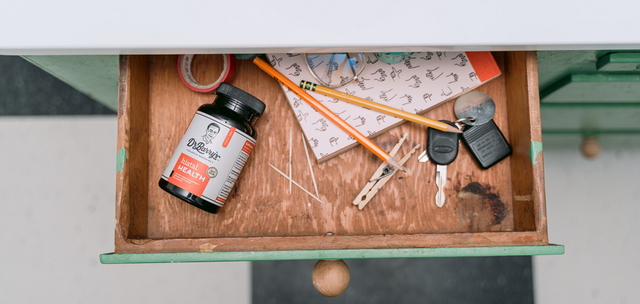5 Natural Ways To Ease Diastasis Recti: What Is Diastasis Recti?

Did you know your abdominal muscles could be causing your reflux? As someone who has had five children, I can attest to the fact that pregnancy can take a toll on your body. From stretch marks to swollen feet, it can feel like your body is constantly changing and adapting to accommodate a growing baby. But one of the most surprising changes I experienced was diastasis recti, a condition where the two sides of the rectus abdominis muscle separate during pregnancy. While many people believe that diastasis recti only affects the appearance of the abdomen, the truth is that it can cause a range of uncomfortable symptoms, including acid reflux, GERD, and even hiatal hernias.
When I first noticed my diastasis recti, I was primarily concerned with how my abdomen looked. There was a noticeable gap between my abdominal muscles, and I felt self-conscious about the way my belly protruded. But as time went on, I began to notice other symptoms as well. I experienced frequent heartburn, especially after eating spicy or acidic foods, and often woke up in the middle of the night with a burning sensation in my chest. I also had difficulty with bowel movements and felt like I couldn't fully engage my core during exercises like yoga or pilates.
It wasn't until I started doing some research that I realized my diastasis recti could be the root of these issues. When the muscles in the abdomen are weak or separated, it can cause a range of issues, including acid reflux and GERD. This is because the weakened muscles allow the stomach to push up against the diaphragm, which can cause the lower esophageal sphincter (LES) to weaken. When the LES is weak, it can allow stomach acid to flow back up into the esophagus, causing heartburn and other uncomfortable symptoms.
Hiatal hernias, which occur when part of the stomach pushes through the diaphragm and into the chest, are also connected to diastasis recti. When the muscles in the abdomen are weak, it can put extra pressure on the diaphragm, which can cause a hiatal hernia to develop. Once a hiatal hernia has formed, it can make acid reflux and GERD symptoms even worse.
The connection between diastasis recti and acid reflux is a complicated one, but it's important to understand the relationship between these two conditions in order to effectively manage symptoms. Here are some of the most important things to know:
 Check Price on Amazon
Check Price on AmazonWhat Is Diastasis Recti?
Diastasis recti is a condition where the two sides of your abdominal muscles separate.
This can cause pain, poor posture, and core weakness.
In addition, you may experience acid reflux or GERD as a result of diastasis recti.
5 Ways To Ease Diastasis Recti
While diastasis recti cannot be cured, there are several natural ways to relieve its symptoms.
1. Take all-natural supplements:
Taking an acid reflux supplement may help ease your GERD and inflammation.
If you’re looking for the best supplement to help with this, I recommend Dr. Barry’s Hiatal Health. Hiatal Health is a supplement that is made to help with indigestion and acid reflux, things that may be an indirect result of your diastasis recti.
With ingredients like quercetin and manganese, you can experience some ease for your GERD.
If you pick yours up, be sure to take it frequently as the best results occur overtime.
 Check Price on Amazon
Check Price on Amazon2. Exercise
Regular exercise helps strengthen the muscles around your abdomen and reduce diastasis recti-related pain or discomfort.
Focus on exercises that target the transverse abdominal muscle (TVA), such as pelvic tilts and bird dogs.
3. Core Strengthening Exercises
Strengthening your core with deep abdominal contractions or planking can provide relief from diastasis recti symptoms.
Be sure not to strain yourself too much and take breaks as needed.
4. Diet
Eating a balanced diet rich in fruits and vegetables can help reduce inflammation and support healthy digestion.
Avoiding processed foods is also important for maintaining good health and healing abdominal muscles.
5. Sleep
Getting enough sleep helps the body rest and recover from injury or pain caused by diastasis recti.
Aim for 7-9 hours of quality sleep each night to help alleviate discomfort from diastasis recti symptoms.
BONUS: Improve Your Posture
Poor posture can cause diastasis recti to worsen, so be sure to keep your back straight and your stomach muscles engaged while standing, sitting, or walking.
Conclusion
With these natural remedies, you can start to relieve the pain and discomfort associated with diastasis recti.
Be sure to speak to your doctor before beginning any new exercise or diet regimen.
With the right care, you can find relief and better manage your symptoms.








